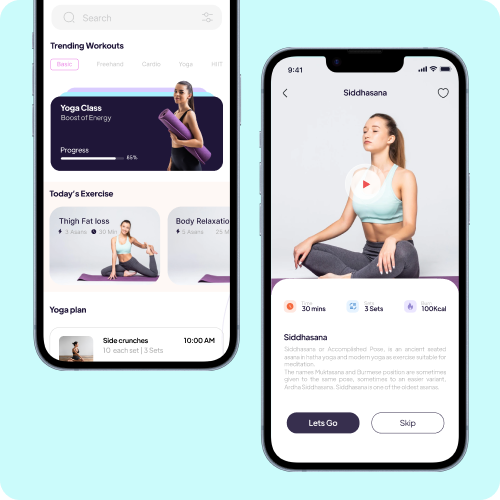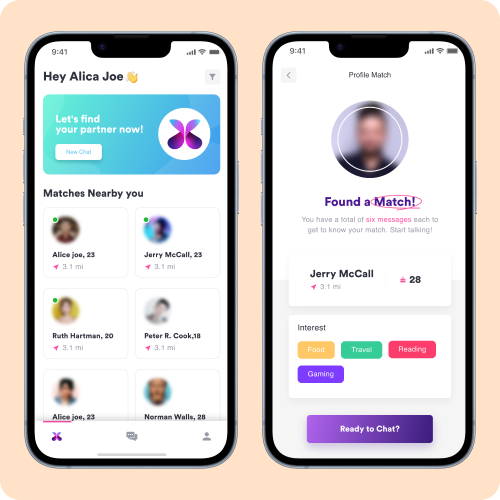In today’s fast-paced digital era, mobile app development and the plethora of platforms: Native Vs Hybrid vs Cross Platform, stands as a cornerstone for entrepreneurs looking to carve their niche in the market. The power of a well-crafted app can’t be overstated—it’s the key to unlocking broader audience reach, enhanced customer engagement, and streamlined business operations.
According to Statista, the annual number of app downloads worldwide will amount to 299 billion this year, up from approximately 275 billion global app downloads in 2022.
Even in 2023, mobile apps are projected to generate more than 935 billion U.S. dollars in revenues via paid downloads and in-app advertising.
Now, as you embark on the journey of bringing your business into the palms of your customers, a crucial decision lies ahead: choosing the right mobile app development approach. Today, we’re diving into the trio of options that dominate the landscape—Native Vs Hybrid vs Cross Platform — to clear this trilemma and help you make an informed decision.
Mobile apps have become the heartbeat of modern businesses, serving as not just a digital storefront but a dynamic tool for brand representation and customer interaction. With the mobile revolution in full swing, the question isn’t whether you need an app but rather, how do you go about building it?
Enter the realm of Native vs Hybrid vs Cross Platform app development. Each avenue comes with its unique set of advantages and considerations. Understanding the nuances of these approaches is pivotal in ensuring that the end product aligns seamlessly with your business goals and resonates with your target audience.
So, whether you’re a startup navigating uncharted waters or an established business seeking to amplify your digital presence, the choice of app development approach sets the tone for your mobile venture. Join us as we break down the complexities, weigh the options, and guide you on the path to choosing the most suitable route for your entrepreneurial aspirations.
Understanding Hybrid Mobile App Development
Hybrid mobile app development—it’s like having the best of both worlds. But what exactly does that mean? In a nutshell, a hybrid app combines elements of both web and native applications. It’s like a chameleon, adapting to different platforms while sharing a common codebase.
The beauty of hybrid lies in its versatility. Developers write the code once using standard web technologies—HTML, CSS, and JavaScript—and then deploy it across various platforms. It’s a cost-effective approach that saves time and resources. Need an app for iOS and Android? No problem. Hybrid streamlines the process.
Now, let’s talk perks. Speed is the name of the game. With a single codebase, updates are swift, ensuring your app stays on the cutting edge. And the user experience? Smooth sailing. Hybrid apps can tap into device features like cameras and GPS, providing a native-like feel.
However, it’s not all sunshine and rainbows. Hybrid apps may not match the performance of their native counterparts, especially for graphics-intensive applications. There’s a trade-off between flexibility and raw power. And keep an eye on updates—sometimes, they might lag behind the latest OS features.
So, in the world of app development, hybrid is the middle ground—a pragmatic choice that brings efficiency and speed to the table. If your app’s demands align with this balance, hybrid might just be the ticket to unleashing your entrepreneurial vision across platforms seamlessly.
Have an app idea in mind? Do you want to develop it in a hybrid platform? Hire an expert from us.
Exploring Cross-Platform Mobile App Development
Cross Platform mobile app development—the bridge between different worlds. Picture this: one codebase, multiple platforms. It’s like having a universal translator for your app, allowing it to speak the language of both iOS and Android.
What’s the secret sauce? Tools like Xamarin, React Native, and Flutter. These frameworks empower developers to craft apps using a single codebase, reducing redundancy and development time. It’s efficiency at its finest.
The advantages? Cost-effectiveness takes the spotlight. Instead of maintaining separate codebases, cross-platform development trims the fat, saving you time and resources.
And updates? Streamlined. One update, two platforms—effortless maintenance.
Now, let’s address the elephant in the room—performance. Cross-platform apps aim to strike a balance, offering solid performance without sacrificing too much speed. It’s a dance between shared code and native optimization.
But beware, not all apps are suited for this crossroads. Graphic-intensive games or apps with complex functionalities might face some performance trade-offs. It’s the classic compromise between universality and specialization.
In the grand scheme, cross-platform is the pragmatic choice for those aiming to reach a broad audience without doubling the workload. If your app’s core functionality doesn’t hinge on bleeding-edge performance, this might just be the passport to navigating the diverse landscapes of iOS and Android.
Native Mobile App Development Unveiled
Native mobile app development—where the app speaks the language of its home platform fluently. Imagine your app seamlessly blending into the iOS or Android ecosystem, harnessing the full potential of each. That’s the essence of native development.
In this realm, there’s no compromise on performance. Native apps are built specifically for each platform, tapping into their unique features and functionalities. It’s like a tailored suit—crafted for perfection. If you are an developer then full stack development is a must needed approach to native app development. Master full-stack development skills at Nucamp’s comprehensive bootcamp.
Speed is the name of the game. Native apps are optimized for the specific hardware and software of each device, resulting in a snappy and responsive user experience. Think of it as a high-speed train, smoothly gliding along the tracks of its designated platform.
The user interface? Aesthetic bliss. Native apps adhere to platform guidelines, ensuring they look and feel like a natural extension of the device. It’s the little details—the gestures, animations, and transitions—that make the user experience a delight.
However, this level of perfection comes at a cost. Native development requires separate codebases for iOS and Android, translating to more time and resources. It’s an investment, but one that pays off in terms of performance and user satisfaction.
So, in the universe of app development, native is the gold standard. If you’re eyeing a performance-driven, platform-specific masterpiece, native development is the artisanal path to ensuring your app stands out in the crowded digital landscape.
Factors to Consider in Choosing the Right Approach
According to a report published by Allied Market Research, the global mobile app market size is projected to grow at a compound annual growth rate (CAGR) of 18.4% from $106.27 billion in 2018 to $407.31 billion by 2026.
Choosing the right approach for your mobile app venture— it’s a decision that warrants careful consideration. Let’s break down the key factors that should sway your choice in the dynamic landscape of app development.
- Cost Considerations: Money matters. Hybrid and cross-platform development often offer cost advantages with a single codebase. Native, on the other hand, might be a bit heavier on the budget due to separate development for iOS and Android. Assess your financial terrain before embarking on the development journey.
- Development Time and Speed: Time is of the essence. Hybrid and cross-platform solutions boast quicker development cycles with code sharing, ideal for those looking to hit the market fast. However, if precision and platform optimization are non-negotiable, native development might take a bit longer but ensures top-notch quality.
- Performance and User Experience (UX): Your app’s performance is its currency. Native apps shine here, harnessing the full potential of device features. If your app involves graphics-heavy tasks or demands optimal speed, native might be the way to go. However, if your focus is on a broader reach and your app’s demands aren’t performance-critical, hybrid or cross-platform could be the sweet spot.
- Maintenance and Updates: Think long-term. Hybrid and cross-platform apps simplify maintenance with shared codebases. Updates are a breeze, reflecting on both iOS and Android. Native, while offering the pinnacle of performance, requires separate updates for each platform. Consider your long-term strategy and how you plan to keep your app current.
In the intricate dance of these factors, the key lies in aligning your development approach with your business goals. There’s no one-size-fits-all solution, but a strategic evaluation of these considerations will pave the way for an informed decision that aligns seamlessly with your entrepreneurial vision.
– Let’s dive into the real-world arena, where the success stories of app development approaches unfold—case studies that illuminate the paths of Hybrid, Cross Platform, and Native development.
- Hybrid Triumph: Instagram
Instagram, a global behemoth, opted for a hybrid approach. The result? A seamless experience on both iOS and Android, showcasing the power of a shared codebase. It’s a testament to the efficiency and versatility of the hybrid landscape.
- Cross-Platform Mastery: Airbnb
Airbnb embraced React Native for cross-platform development. The outcome? A uniform and polished experience across iOS and Android devices. The choice paid off, allowing Airbnb to expand its reach without doubling development efforts.
- Native Excellence: Google Maps and Apple Music
Google Maps for Android and Apple Music for iOS—exemplars of native development. These apps harness the native strengths of their respective platforms, delivering unparalleled performance and an immersive user experience.
Assessing Your Project Needs
As you stand at the crossroads of app development approaches, a crucial checkpoint emerges—assessing your project needs. Here’s a quick navigation guide to ensure you’re on the right path:
- Evaluating the Nature of Your Business:
Consider your business landscape. Is it a startup venturing into uncharted territories or an established enterprise seeking digital expansion? The nature of your business sets the tone for your app’s requirements.
- Identifying Your Target Audience and Their Preferences:
Know your audience. Are they predominantly iOS users, Android enthusiasts, or a mix of both? Understanding their preferences helps tailor your app to resonate with your user base.
- Considering Future Scalability and Updates:
Think ahead. Where do you see your app in the future? If scalability and frequent updates are on the horizon, a development approach that simplifies this journey is paramount. Hybrid or cross-platform might be the answer.
- Balancing Functionality and Performance:
What’s your app’s core functionality? If it’s graphics-intensive or demands optimal speed, the native route ensures top-notch performance. Conversely, if broad accessibility is the priority and performance isn’t a deal-breaker, hybrid or cross-platform may suffice.
- Budget Constraints:
Money talks. Evaluate your budget constraints. Hybrid and cross-platform often shine here, offering cost-effective solutions. Native development, while robust, might entail a higher investment due to separate codebases.
- Time Sensitivity:
Speed matters. If time is of the essence, hybrid and cross-platform development boast quicker turnaround times. However, if precision and platform optimization are non-negotiable, native might be worth the wait.
In this assessment phase, the key is to align your app’s needs with the strengths of each development approach. It’s not just about today but about laying the foundation for your app’s success in the ever-evolving digital landscape.
Want to discuss your project? Book a free consultation
Making the Decision: Native Vs Hybrid vs Cross. Which Approach is Right for You?
By 2025, revenue from mobile apps is expected to increase across most segments and reach a total of around $613 billion. The demand is manifold and as we wrap up our exploration of Native Vs Hybrid vs Cross Platform Mobile App Development, let’s distill the essence of our journey into a few key takeaways:
- Recap of the Three Approaches:
Hybrid, Cross Platform, and Native—each has its merits. Hybrid offers versatility, Cross Platform provides efficiency, and Native ensures precision. The choice depends on your unique project needs.
- Encouragement for an Informed Decision:
Making the right choice requires careful consideration. Embrace the insights gained, assess your business needs, and craft a decision that aligns seamlessly with your vision.
- Closing Thoughts on the Dynamic Nature of Mobile App Development:
The digital landscape evolves, and so should your app strategy. Stay attuned to emerging technologies, user trends, and the ever-changing demands of the market. Flexibility is your ally.
- A Nod to the Power of Mobile Apps for Entrepreneurs:
Mobile apps aren’t just tools; they’re catalysts for business growth. Whether you’re a startup or an established entity, the right app can redefine your connection with users and elevate your brand.
- Invitation to Embrace the Challenge:
– Choosing an app development approach is not just a task; it’s an opportunity. Embrace the challenge, be strategic in your decisions, and let your app become a testament to your entrepreneurial prowess.
In conclusion, the journey of mobile app development is as dynamic as the digital world it inhabits. Your app is not merely lines of code; it’s a manifestation of your business aspirations. May your choice of development approach be the compass guiding your app to success in the ever-evolving landscape of digital entrepreneurship.
Regardless of what platform you choose, we offer expertise in every platform landscape.
Hire dedicated developers who you can rely on to make the best apps for your business.








































